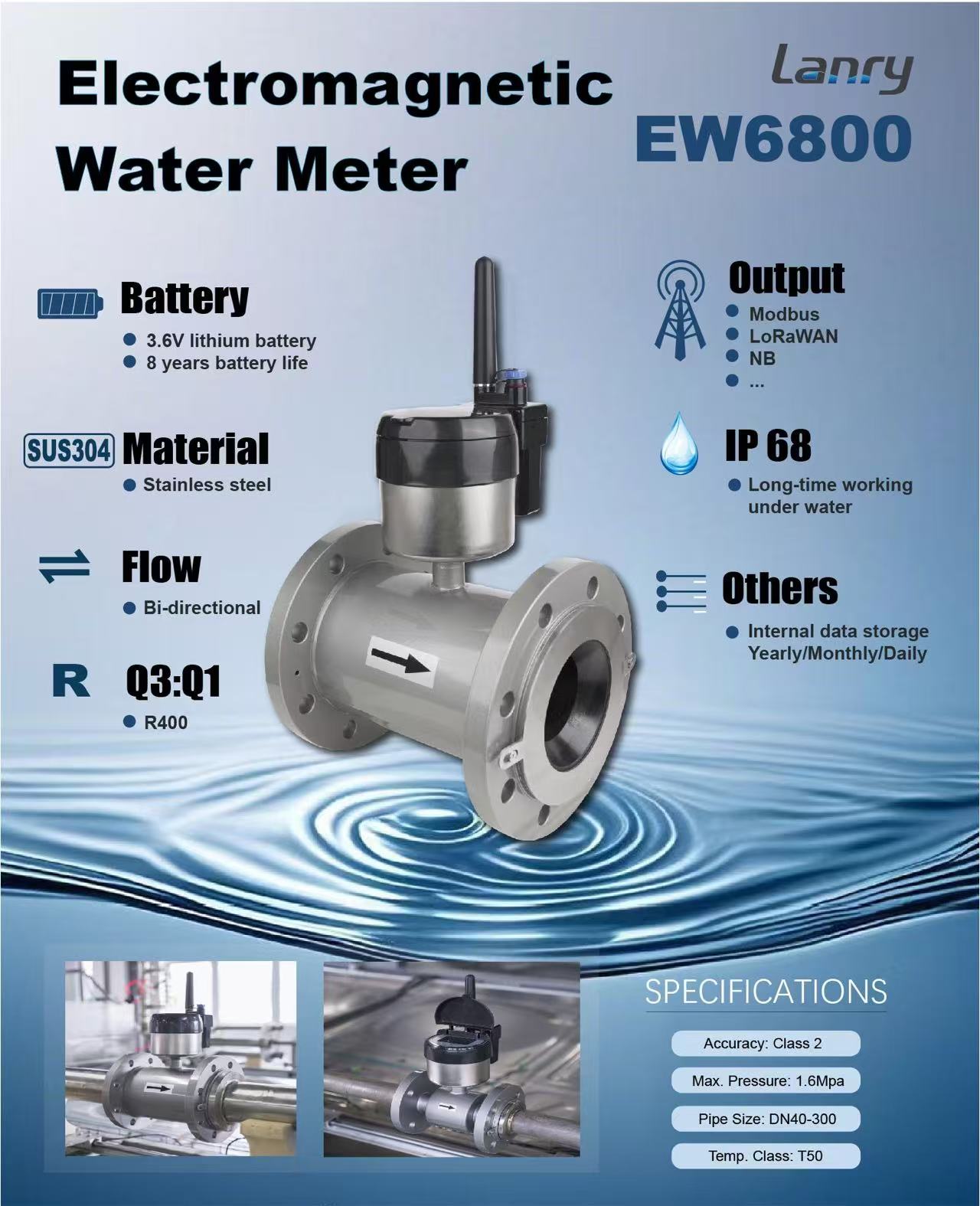1. Municipal Water Supply Systems
In urban water supply networks, electromagnetic water meters play a pivotal role. They are installed at key points in the distribution system, such as at the entry points of residential areas, commercial zones, and industrial parks. By accurately measuring the volume of water flowing through these pipelines, water utility companies can precisely bill consumers based on their actual consumption. This not only ensures fair charging but also helps in detecting leaks in the distribution network. For example, if there is a sudden and unexplained increase in the water flow rate measured by a meter in a particular area, it could indicate a leak in the underground pipes. The high - precision nature of electromagnetic water meters enables the detection of even small leaks, which, if left unattended, could lead to significant water loss over time.
2. Industrial Applications
Industries have a voracious appetite for water, and electromagnetic water meters are crucial for optimizing water usage. In manufacturing plants, these meters are used to monitor water consumption in various processes. For instance, in the food and beverage industry, water is used for cleaning, rinsing, and as an ingredient in production. Electromagnetic water meters help in accurately measuring the amount of water used in each process, allowing companies to identify areas where water can be conserved. In power generation plants, water is used for cooling purposes. Precise measurement of water flow using electromagnetic meters ensures that the cooling systems operate efficiently. Any deviation from the optimal water flow rate can be detected promptly, preventing potential equipment failures due to overheating or inefficient cooling.
3. Irrigation Systems
In the agricultural sector, efficient water management is of utmost importance. Electromagnetic water meters are increasingly being used in modern irrigation systems. They are installed at the water source of irrigation canals or at the inlets of individual fields. By accurately measuring the amount of water supplied for irrigation, farmers can ensure that their crops receive the right amount of water. This not only promotes healthy crop growth but also helps in conserving water, which is a precious resource. With the data from electromagnetic water meters, farmers can also analyze their irrigation patterns over time and make informed decisions about adjusting their irrigation schedules based on factors such as weather conditions, soil moisture levels, and crop water requirements.
4. Environmental Monitoring
Electromagnetic water meters also find applications in environmental monitoring. They are used to measure the flow of water in rivers, streams, and estuaries. Scientists and environmental agencies rely on the accurate data provided by these meters to study water - related ecosystems. For example, by monitoring the water flow rate in a river, they can assess the impact of human activities such as dam construction, industrial effluent discharge, and urban development on the river's natural flow regime. This data is crucial for maintaining the ecological balance of the water bodies, protecting aquatic habitats, and ensuring the sustainable use of water resources.
In conclusion, electromagnetic water meters have become an indispensable tool in modern water management. Their wide - ranging applications in municipal, industrial, agricultural, and environmental sectors contribute significantly to efficient water usage, conservation, and sustainable development. As technology continues to advance, we can expect these meters to become even more sophisticated, further enhancing their performance and utility in the future.

Post time: Feb-24-2025

